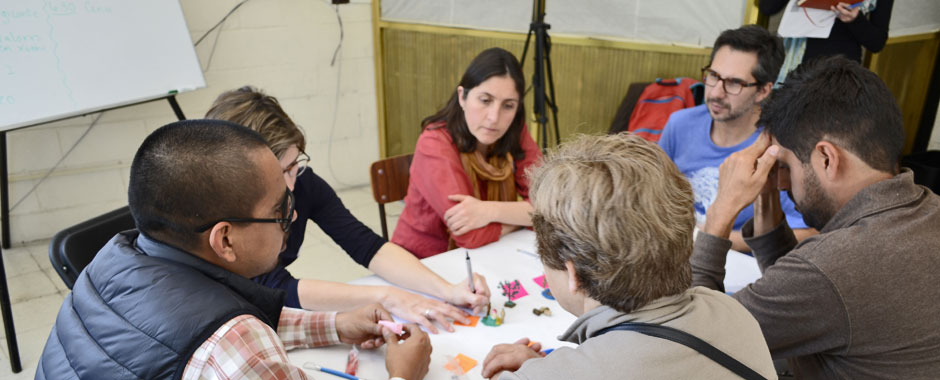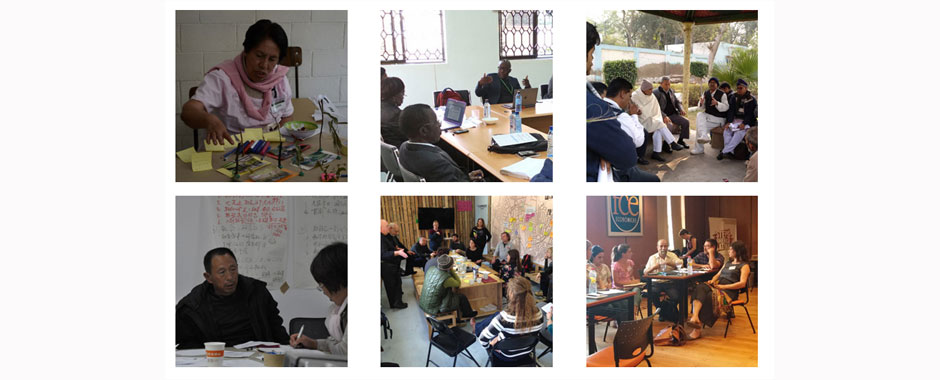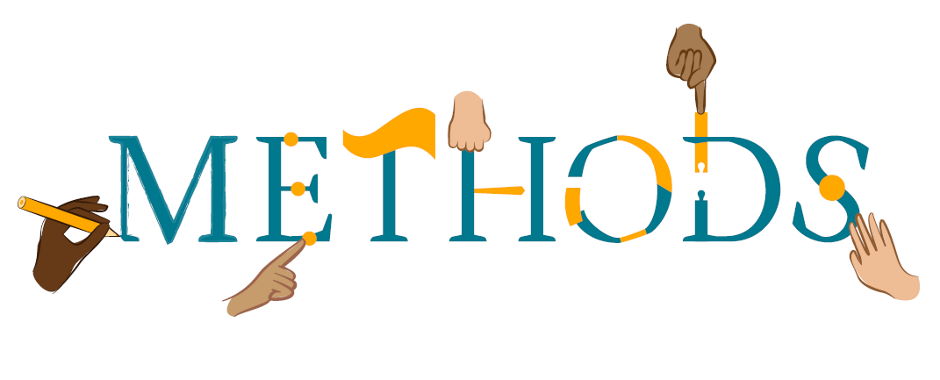by Marina Apgar and Rose Cairns, Methods theme convenors
In this introductory blogpost for the STEPS theme on Methods, we discuss three meanings of sustainability research as ‘challenging research’. Methods make a difference to the potential of research to challenge power; yet power also deeply shapes the way research is framed, carried out and interpreted. This encourages us to look beyond myths of ‘neutral’, objective research for sustainability, and understand how research and action are intertwined. These themes are further explored in a webinar on 17 February 2021, the first in a series of events on Challenging Research.
The role of robust research on sustainability issues has never seemed more urgent. In this moment of multiple intersecting crises – from the Covid-19 pandemic with its financial and human consequences, to ever deepening concerns over climate change and widespread biodiversity loss – calls to ‘listen to the scientists’ on sustainability issues are louder than ever.
These calls speak not only to frustration at political and societal inaction, but to a desire to find solid ground in the shifting sands of an increasingly disorienting online knowledge domain. On the internet, the ‘truth’ of any given claim seems to matter less than the clicks and associated advertising revenue it generates. In real life, the failures of politics-as-usual and business-as-usual are exposed again and again. Behind these audible frustrations is a widespread societal desire for change: a call to action and a challenge to politics and business as usual.
Building on the STEPS Centre’s 15-year history of revealing and challenging how futures are framed and imagined (and by whom), which options are considered and chosen, and how power shapes pathways to sustainability, we explore three interconnected ways in which sustainability research is called to be ‘challenging research’: research that challenges power; research that challenges the imprints of power on knowledge and the notion of ‘neutral science’; and research that challenges the separation of knowledge and action.
Research that challenges power
Sustainability research is – or at least can be – research that challenges power directly. It can generate knowledge and action that disrupts business as usual, opening up opportunities for alternative voices to be heard and a (re-)existing of multiple futures to materialise for more viable and just pathways to sustainability.
Methods are at the front line of sustainability research. They are the vehicles through which research is deployed within real life sustainability challenges. Over the years, we have explored the multiple ways in which the methods we use are able (or not) to challenge power to ‘open up’ and ‘broaden out’. Through case studies in a range of sustainability contexts from across the world, such as developing pro poor low carbon energy technology in Kenya, or transitions to agroecological food systems in the UK and examining uncertainties from below around climate change in India, we have evolved new ways of applying the pathways approach in particular contexts.
Through this grounded research we have been reflecting on the particular qualities of methods in use. For example, some methods tend to enable us to explore different views of a problem in question – such as Q method and multicriteria mapping. Other methods are designed to collaboratively assess and imagine future scenarios. Others, like participatory visual methods, aim to learn from different people’s distinctive ways of seeing the world.

This rich experience raises new lines of questioning about how we develop and employ methods to challenge power. For example, which methods can deepen understanding from the perspectives of situated and intersecting subjectivities? Or what is the role of art in (or as) a method?
Challenging ‘neutral’ research
But ‘challenging research’ for sustainability also requires that we look within: to question the idea of a singular scientific domain of expertise, outside of the messy social realities of life, from which dispassionate experts can signpost a sustainable future.
From pandemics to pesticide use, the problems normally labelled as ‘sustainability challenges’ are complex and often contested. A single definitively ‘neutral’ stance is impossible, even if it were desirable. This means that the knowledge generated around these problems isn’t neutral: it’s shaped by the methods and practices involved in doing research.
This shaping can be obscured or forgotten, however, if we fail to look critically at methods and methodologies, the ‘infrastructures’ they rely on, and the cultures by which they are constituted. Skewed by market forces and neoliberalisation, these infrastructures of research have ended up distorted. They tend to simplify and specify through categories that are presented as if they are universal.
These forces have made it an uphill struggle for research to navigate through real-world sustainability challenges. Silently, almost unnoticed, space is closed down for ‘other’ ways of knowing and being to flourish. Instead of embracing a ‘pluriverse’, the knowledge produced in the name of sustainability can play into the hands of those seeking control and violence rather than care and emancipation.
To be clear, being alert to the plurality of knowledges for sustainability is a fundamentally different project from the ‘anything goes’, ‘alternative facts’ of the authoritarian right. Rather, it’s about focusing necessary attention on the imprints of power on knowledge. For example, how is knowledge production shaped by inequalities on the basis of gender or race, or ongoing processes of modernity/coloniality? How, in turn, do these influence how problems and solutions are defined and presented?
Another question centres on pressure to reduce and simplify. How do the architectures and incentives of research and policy act to shape knowledge in ways that simplify the messiness of everyday life? What makes people want to present irreducible uncertainties or ambiguities of sustainability in terms of more manageable notions of ‘risk’? This is the second way in which sustainability itself poses challenges to research: sustainability requires exposing and challenging the multitude of ways in which power imprints on knowledge.
Challenging the separation of knowledge and action
Sustainability also challenges research in a third sense, which goes beyond the appreciation of different knowledges, to challenge the separation between the production of knowledge (research) and action. This action orientation is not new to sustainability research. It is linked to calls for more transformative approaches, a theme that the STEPS Centre has been exploring, reflecting on the politics of transformation across many different sustainability challenges.
Taking an ‘action turn’ requires appreciating the ways in which sustainability researchers become intimately bound up in the contexts and issues they study. Not only does knowledge inform action, but intended and past actions also shape knowledge. The challenge is about looking at the process as well as the outcomes of research – in order to open up ‘transformative spaces’.

Part of this involves realising that ‘impact’ is not simply achieved by submitting disinterested outputs to academic journals or writing policy briefs. It is a messy, distributed, co-produced endeavour that occurs at multiple levels, from the individual to the realm of international policy, through and in research processes.
Sustainability research, then, requires that we challenge ourselves to broaden our understandings of impact and action; to move beyond and outside of our comfort zones (be they disciplinary, institutional or political); that we challenge the identities (and egos) associated with research hierarchies; to go beyond the business as usual of publishing ‘outputs’ in academic journals; beyond the hope (rarely made explicit) that our offerings will somehow have positive impacts for the people and problems we study; and beyond paying lip-service to notions of ‘participation’ or ‘transdisciplinarity’.
What does it mean to challenge research?
In 2021, this last year of the STEPS Centre, we will convene a series of virtual events and conversations around this theme of Challenging Research. The series will ask what kinds of methodological assemblages, frameworks, tools and associated ways of being might push our praxis towards the transformative edge we seek.
Three interrelated dimensions of methods will guide the conversation from the situated practice of methods and looking out towards the broader institutional and cultural dimensions they are part of:
- Our starting point is the specific practices of particular methods that aim to open up and broaden out in particular contexts. We will create a safe and honest space to reflect on and learn about how they are applied, the attributes or affordances of the methods themselves, and their users. How do these enable or hinder these methods in working towards specific pathways, and who benefits?
- Then, we are interested in methods from the point of view of learning: asking what it means to be a transdisciplinary researcher engaging with social movements learning, exploring the rich thinking around critical pedagogies, and engaging with calls for structural and institutional change of learning institutions.
- Finally, we aim to reflect on the methodological dimensions of debates about knowledge hierarchies. We ask how methodological practice and associated ways of learning can be oriented towards decoloniality, epistemic justice and constructing the pluriverse. What are the methodological implications of engaging seriously with demands to ‘decolonise’ sustainability research?
The thematic focus of challenging the way we do research – methods – provides a platform to revisit or to draw out learning from longstanding engagements. It will also allow us to go beyond, to make new connections, cultivate new relationships and facilitate new conversations between diverse groups within and outside academia, working to co-create knowledge in the service of shifting power for a more sustainable future.
dialogue Event: Challenging research for sustainability
Challenging research for sustainability: transdisciplinary methods, relationships, politics and praxis
17 February at 14.00-16.00 (UTC), online
In this first event in our Challenging Research series, we discuss the ideas and praxis involved in ‘opening up’ and ‘broadening out’ sustainability research. What does it mean to ‘open up’ research to enable plural knowledges and views to be included and considered? Why and how do we ‘broaden out’ to reveal potential pathways of development that could support diverse emancipatory futures?
The event includes a panel of speakers from STEPS hubs in the UK, Mexico and Kenya.
Methods – our theme for 2021
 Many methods offer ways to link knowledge and action for sustainability. But there are intense pressures to close down and narrow the way knowledge is produced and used for instrumental ends. What methodological assemblages, frameworks, tools and associated ways of being could help challenge these pressures, open up to more perspectives and participation in research, and allow us to pursue more plural pathways to sustainability?
Many methods offer ways to link knowledge and action for sustainability. But there are intense pressures to close down and narrow the way knowledge is produced and used for instrumental ends. What methodological assemblages, frameworks, tools and associated ways of being could help challenge these pressures, open up to more perspectives and participation in research, and allow us to pursue more plural pathways to sustainability?
